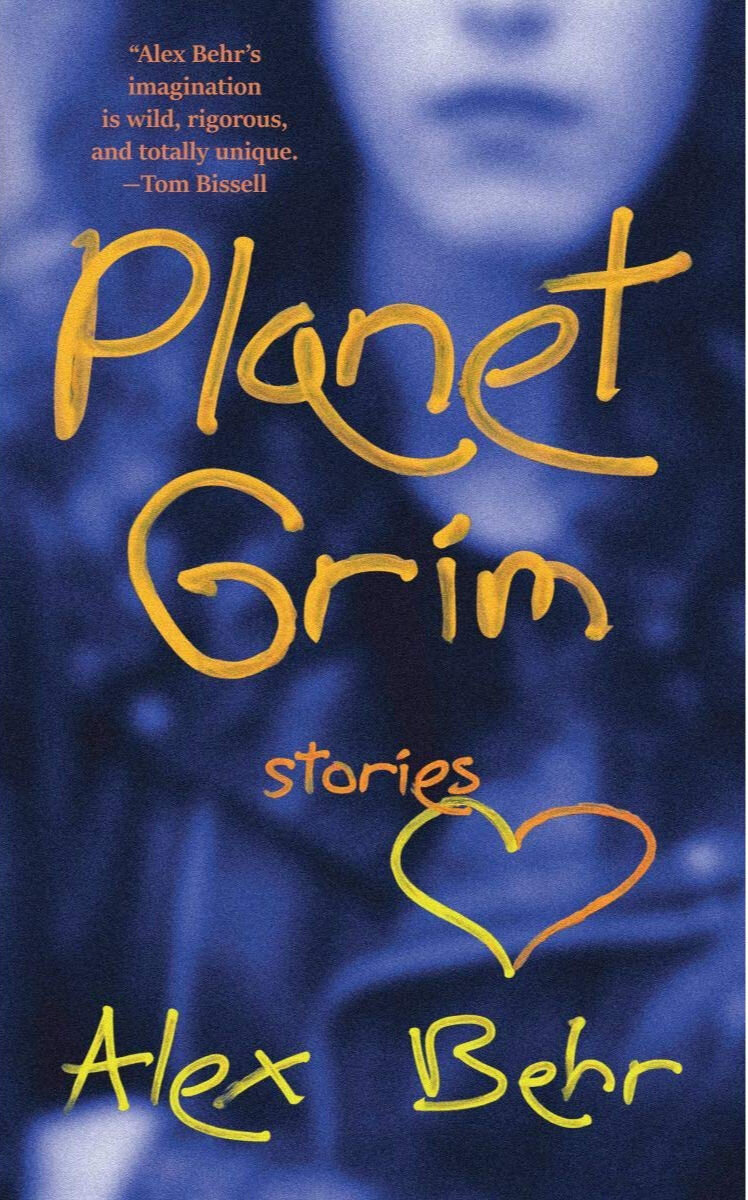Alex Behr's Planet Grim
Planet Grim is difficult to describe because it’s such a complex (and often complicated) gathering of short stories. There’s pain and suffering, but humor is just as prevalent. Imagine a Flannery O’Connor world written by David Sedaris.
In “Teenage Riot,” one of the first—and best—stories in Alex Behr’s debut collection, Planet Grim, a broken teenage girl admits, “I want something to love.” It seems like such a simple statement, but, like the stories with which it shares its space, there’s much more happening beneath the surface.
Planet Grim is difficult to describe because it’s such a complex (and often complicated) gathering of short stories. There’s pain and suffering, but humor is just as prevalent. Imagine a Flannery O’Connor world written by David Sedaris. In “Wet,” for example, we find an unnamed woman struggling to deal with her recent divorce. Her pain is real: “I cut off my left arm with nail clippers. It hangs on. I can’t snip the final pieces of dried-out skin.” But Behr gives the story an added dimension by juxtaposing the immense sorrow with comedic absurdity. The woman says, “I have stained teeth and an undeniable love of cheese.”
“A Reasonable Person,” another one of Planet Grim’s standouts, strikes a similar balance. Here, Mary, a juror on a murder case in which a boy saw his mother murdered, can’t focus on the trial because she’s so overwhelmed by the struggles of her own life. Some are seemingly minor: she worries about when to urinate and if her armpits stink. Others, though, are much more serious. After going home, she removes her own absent son’s clothing from a drawer and cradles them on a bed. She talks to him intimately. It’s unsettling, but Behr works her magic again. Mary says to her son’s scattered clothing, “You ran pretty damn far from me!” It becomes heartbreaking.
“Sentient Times” and “The Garden” are two other stories that show Behr at her best, shifting tones and engaging in affecting wordplay. She’s a master of language, and these stories show a meticulous command.
One of the most appealing elements of Planet Grim is how Behr focuses on characters who are so realistic. These are characters who are identifiable misfits—maybe our own family members or even ourselves. They are struggling, but they are still fighting. There are issues with drugs, parenthood, childhood, divorce, and death. Even in their most desperate situations, they are still relatable.
At twenty-eight stories, Planet Grim could lose a few of the stories and, perhaps, be a little stronger. Having so many stories with dynamic shifts and quirks creates an occasionally fragmented overall experience. The ones that do work, though, and just for the record, most of them do work, sing.
Planet Grim is an affecting debut that should remind us how we’re all fighting a tough battle.

